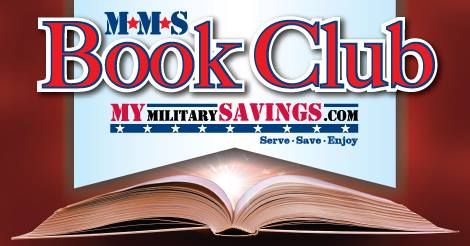http://i1293.photobucket.com/albums/b593/rebecca_hill24/Ebsworth1_zpszamy1d5y.jpg
Hi Dave, thank you for agreeing to this interview. Tell us a little about yourself and your background?
Hello Rebecca, and thanks for inviting me. Well, first, David Ebsworth is just my pen name. My real name’s Dave McCall and I was born in Liverpool (UK) in 1949 I was brought up there but moved to Wrexham, North Wales (only about 35 miles away) in 1980, and been there ever since. For most of my working life I was a union negotiator and organizer but started writing a few years ago, after I retired from full-time work. My wife, Ann, is my “ideal reader” and we have four grown-up kids, nine grandchildren plus, now, our first great-grandchild. Ebsworth is the surname of one of my grandfathers and using it for a pen name to launch a “new career” just felt like the right thing to do.
What are your ambitions for your writing career?
At the age of 65? To make it a LONG one, naturally! And then, on a more serious note, simply to keep getting better at writing – to give folk a decent return for the time they invest in reading my stories.
Which writers inspire you?
I was brought up on a diet of Dickens and Wodehouse and still love them. But then I discovered a whole batch of (mostly British) historical fiction writers and became hooked by them. So, most notably, Rosemary Sutcliff, Georgette Heyer and C.S. Forester. Later, I discovered Truman Capote, Norman Mailer and Kurt Vonnegut, and they’ve all had some influence on me too. And then, more recently, two more fabulous British authors of historical fiction – Hilary Mantel and Patrick O’Brian. I suppose if there were ANYBODY I’d really like to emulate, it would be O’Brian – Napoleonic naval stories, full of blood and thunder, but remarkable protagonists. I can’t believe that it’s fifteen years since he died and his main characters (Stephen Maturin, Diana Villiers, Cousin Sophie and the irrepressible Lucky Jack Aubrey) still walk at my side every day.
So, what have you written?
Four historical novels, mainly. The first, The Jacobites’ Apprentice, is a Bonnie prince Charlie tale, set in Manchester, England, in 1745. The second, The Assassin’s Mark, is set towards the end of 1938, during the Spanish Civil War. The third one is called The Kraals of Ulundi, and it’s about the Anglo-Zulu War of 1879. And the fourth, published in January this year, is The Last Campaign of Marianne Tambour, a story about the Battle of Waterloo and some of the French women who fought in the front lines of Napoleon’s army. Apart from the novels, I’ve written several short stories, most of which are adapted from key stand-alone chapters of the books themselves, and one of them, Sobhuza’s Kraal, was awarded a prize by the Historical Novel Society, so included in their recent anthology, The Beggar at the Gate and Other Stories. I also try to keep up with the blog pages on my website, whenever I find something new and entertaining to post. So, with Marianne, for example, I’ve just included a page so that readers can hear all the music mentioned in the book – mostly soldiers’ marching songs, or drum and trumpet calls from the French army of 1815.
What are you working on at the minute?
Two things at the moment. The first is another historical novel, but this one set in 6th Century Britain, at the start of the so-called Dark Ages. As it turns out, much of what we thought we knew about that century is wrong, including much of the mythology about “King Arthur” – and The Song-Sayer’s Lament sets out to paint the picture more accurately though, naturally, with mostly fictional characters. The second is a bit of a departure for me. It’s a one-off Science Fiction story that’s been in my head for a long time.
What’s it about?
Oh, the Sci-Fi story? I’m not sure I can easily explain it. It’s set roughly a thousand years from now, in 2935 AD. By that time, the growth and replacement of organic body parts will be commonplace, as will our ability to download, store and move human thought patterns. The “internet” will, effectively, have become our collective brain and memory. So, what happens when the collective memory of humanity comes under attack from within? But it’s really more about how we, as people, will respond and develop to the ever-accelerating changes in our technology.
What genre are your books and what draws you to this genre?
With the exception of the Sci-Fi story (which will only be a novella and a one-off, as I said) the rest are all historical fiction. History’s important to me, and I’m always mindful of the Edmund Burke quote: “Those who don’t know history are doomed to repeat it.” But to know history, we have to understand it properly, to see it from “both sides.” All too often, we just accept the version of events handed down by one side or the other when, in reality, we should look at it from the perspective of both the winners and losers. Then, normally, if we draw a line somewhere midway between those two perspectives, we’re likely to be somewhere near “the truth” of what happened. And the value of good historical fiction, for me, is that it should explore those issues in a way that’s not too stuffy, a way that’s entertaining, a way that brings the lessons of history to a much wider audience that non-fiction could ever do.
Do you write full-time or part-time?
Now that I’m retired, I guess the answer is full-time – if that makes sense. My daily routine sees me at my desk around 7.00am. I write until about 9.30am and then go for a long swim in the local pool – normally a couple of kilometers. Then it’s time for cake in my favourite coffee shop where I write for another couple of hours. The afternoon and evening normally get taken up with marketing the books already published or researching the next section of the current work-in-progress.
Where do the ideas come from?
I usually know what period I want to tackle next and set out a time line of events that I want to cover. Then I look at the opposing views about those events and create some characters that, I think, might make good protagonists and represent those conflicting views. After that, I try to find the previously “untold stories” about the period and weave those into the time line. One way or the other, I’ve then usually got enough ideas to give the story its core.
Do you work to an outline or plot or do you prefer just see where an idea takes you?
A mix of both, really. The beauty of writing historical fiction is that the basic “plot” is already written for you. We all know, for example, how the battle of waterloo is going to end up, don’t we? So the trick, for me, is to develop the characters enough so that they almost have a life of their own, then set them free on the historical plot line and see where it takes them. The nicest compliment I’ve received about Marianne was from a lady who said: “I KNEW that the French must lose the battle but the characters were so convincing that, this time, I really thought they might win!”
What is the hardest thing about writing?
For me, it’s that development of the characters. It’s not hard in itself, but it certainly takes a long time. And it’s the part that, I think, you probably never stop learning about.
What is the easiest thing about writing?
Stopping. Seriously, there are so many distractions. Breakfast. E-mails. Telephones. A thousand evil things. So you have to ignore all the easy things and get your word count done. Every day! I don’t think it matters whether you write for fifteen minutes each day or fifteen hours. But you have to have a routine about it. A discipline. Then stick to it. EVERY day!
How can readers discover more about you and you work?
Website: http://www.davidebsworth.com
Facebook: https://www.facebook.com/pages/David-Ebsworth/372113212814491?ref=bookmarks
Twitter: https://twitter.com/EbsworthDavid
Linkedin: https://www.linkedin.com/profile/view?id=83414077&trk=nav_responsive_tab_profile_pic
Amazon Author Page: http://www.amazon.co.uk/David-Ebsworth/e/B007C7I0XS/ref=dp_byline_cont_pop_book_1
Book Links: (* American, UK, etc.)
http://www.amazon.com/Last-Campaign-Marianne-Tambour-Waterloo/dp/1781323216/ref=sr_1_1_twi_1?ie=UTF8&qid=1426103138&sr=8-1&keywords=the+last+campaign+of+marianne+tambour
http://www.amazon.co.uk/Last-Campaign-Marianne-Tambour-Waterloo/dp/1781323216/ref=sr_1_1_twi_1?s=books&ie=UTF8&qid=1426102000&sr=1-1&keywords=the+last+campaign+of+marianne+tambour
Goodreads: https://www.goodreads.com/author/show/5780879.David_Ebsworth
http://i1293.photobucket.com/albums/b593/rebecca_hill24/Marianne-cover_zpskajwkwbm.jpg
http://i1293.photobucket.com/albums/b593/rebecca_hill24/Kraals-cover_zpsmsbw55ls.jpg
http://i1293.photobucket.com/albums/b593/rebecca_hill24/Assassins-Cover_zpstz59tglc.jpg
http://i1293.photobucket.com/albums/b593/rebecca_hill24/Jacobites%20Cover_zpsotsxtgzj.jpg












Add comment